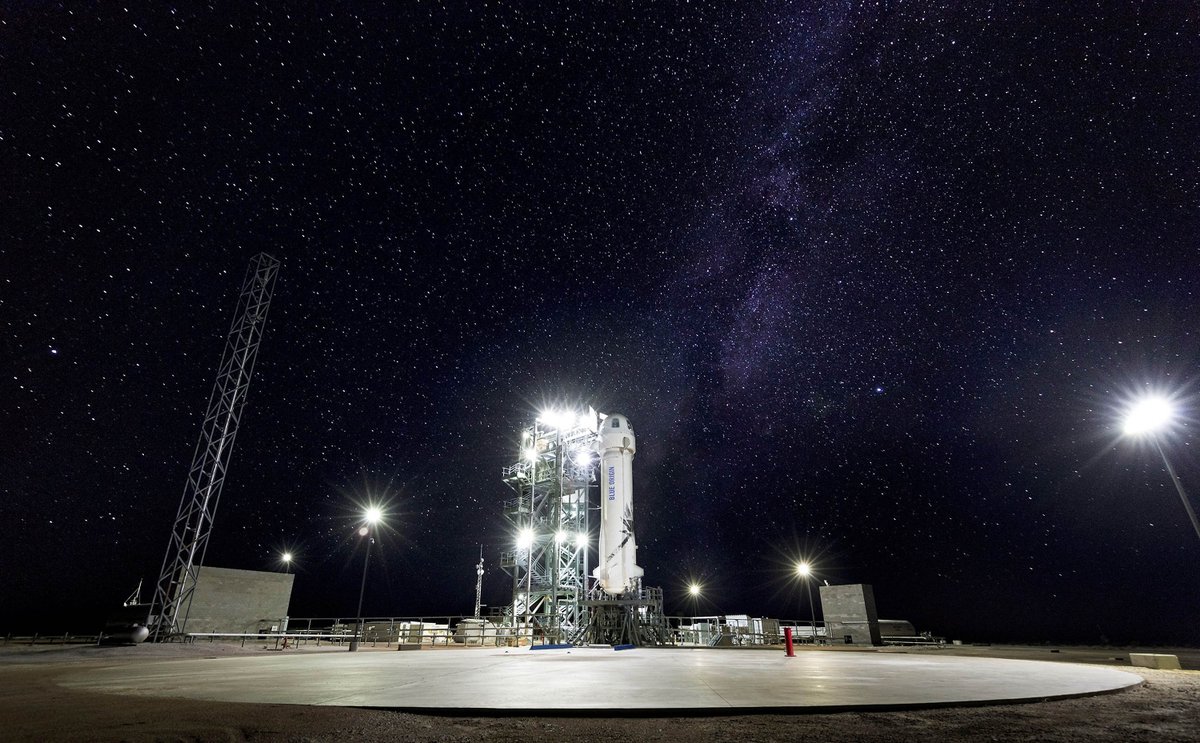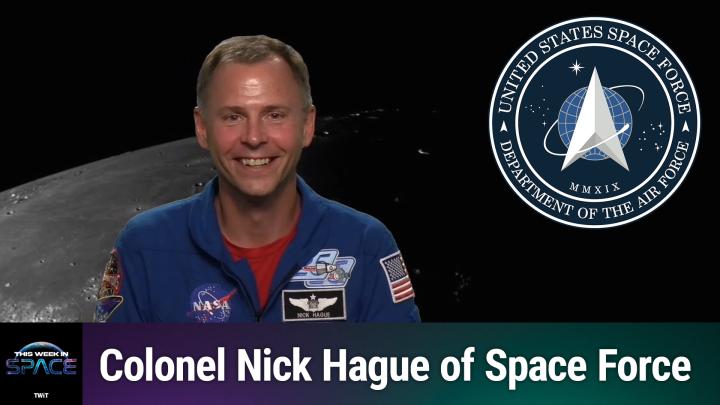Blue Origin Delays New Shepard Launch Due to Ground Issue
UPDATE for 9 pm ET: Blue Origin won't launch its next New Shepard suborbital mission until Friday (Dec. 21) at the earliest. "Still working through ground infrastructure issues and monitoring incoming weather in West Texas. Slating next launch window NET Friday 12/21 pending further review," company representatives said via Twitter.
UPDATE for 9 am ET: Blue Origin has officially called off today's launch of a New Shepard spacecraft carrying NASA experiments due to a ground issue. "We are scrubbing today's #NewShepard launch due to a ground infrastructure issue. The vehicle is in good standing. Stand by for updates as we see what weather looks like for tomorrow," company officials said.
Original story: Blue Origin, the private spaceflight company founded by Jeff Bezos, will launch experiments for NASA on a suborbital rocket ride today (Dec. 18) using its New Shepard spacecraft and you can watch the action live here.
The reusable New Shepard rocket and capsule is scheduled to launch from Blue Origin's West Texas site at 9:30 a.m. EST (1430 GMT). It will be the fourth spaceflight for this New Shepard vehicle and the tenth launch overall for Blue Origin. The launch webcast will begin at 9 a.m. EST (1400 GMT), company representatives said. The mission is one of three launches today (all uncrewed) across the U.S. (A fourth by Arianespace has been delayed by weather.)
"This will be the 10th New Shepard mission and is dedicated to bringing nine NASA-sponsored research and technology payloads into space through NASA's Flight Opportunities program," Blue Origin representatives wrote in an announcement. "NASA's Flight Opportunities program is an essential program for researchers providing access to microgravity for technology development. Blue supports NASA's Flight Opportunities program and its role in perfecting technology for a future human presence in space."

The experiments riding aboard New Shepard are a varied bunch. They include a spacecraft electronics cooling experiment for NASA's Goddard Space Flight Center; the Suborbital Flight Experiment Monitor-2 built by the agency's Johnson Space Center to study the environment inside New Shepard for future experiments; as well as seven other experiments for universities and companies to study the microgravity environment.
"Thank you for flying with us @NASA and @NASA_Technology!" Blue Origin representatives wrote on Twitter Monday (Dec. 17). "We've had fun getting ready for launch with your teams in West Texas."
Get the Space.com Newsletter
Breaking space news, the latest updates on rocket launches, skywatching events and more!
The New Shepard on today's launch made its first flight to space in December 2017. It flew again in April of this year, and then one more in July, when it performed a successful in-flight abort test.
Blue Origin's New Shepard spacecraft may be just carrying experiments on today's flight, but the spacecraft is designed to fly human passengers on round trip flights to suborbital space. The spacecraft's main booster launches its crew capsule (which features the largest windows ever built for space) up to suborbital altitude, then returns to its landing site to make a vertical landing.
The capsule, meanwhile, experiences several minutes of weightlessness before re-entering the atmosphere and deploying parachutes to slow itself for landing. Each New Shepard vehicle can carry up to six passengers or fly uncrewed with experiments aboard. Blue Origin has not yet flown people on New Shepard, nor has the company - which has pledged to sell tickets for space trips, but has not revealed the cost of those flights.
Blue Origin's launch attempt today comes less than a week after the successful flight of Virgin Galactic's SpaceShipTwo Unity to an altitude of 51.4 miles (82.7 kilometers), which some consider space, with two pilots aboard. Virgin Galactic also plans to seel flights on its SpaceShipTwo space plane for $250,000 per seat.
Visit Space.com for complete coverage of today's Blue Origin launch.
Email Tariq Malik at tmalik@space.com or follow him @tariqjmalik. Follow us @Spacedotcom and Facebook. Originally published on Space.com.
Join our Space Forums to keep talking space on the latest missions, night sky and more! And if you have a news tip, correction or comment, let us know at: community@space.com.

Tariq is the Editor-in-Chief of Space.com and joined the team in 2001, first as an intern and staff writer, and later as an editor. He covers human spaceflight, exploration and space science, as well as skywatching and entertainment. He became Space.com's Managing Editor in 2009 and Editor-in-Chief in 2019. Before joining Space.com, Tariq was a staff reporter for The Los Angeles Times covering education and city beats in La Habra, Fullerton and Huntington Beach. In October 2022, Tariq received the Harry Kolcum Award for excellence in space reporting from the National Space Club Florida Committee. He is also an Eagle Scout (yes, he has the Space Exploration merit badge) and went to Space Camp four times as a kid and a fifth time as an adult. He has journalism degrees from the University of Southern California and New York University. You can find Tariq at Space.com and as the co-host to the This Week In Space podcast with space historian Rod Pyle on the TWiT network. To see his latest project, you can follow Tariq on Twitter @tariqjmalik.
